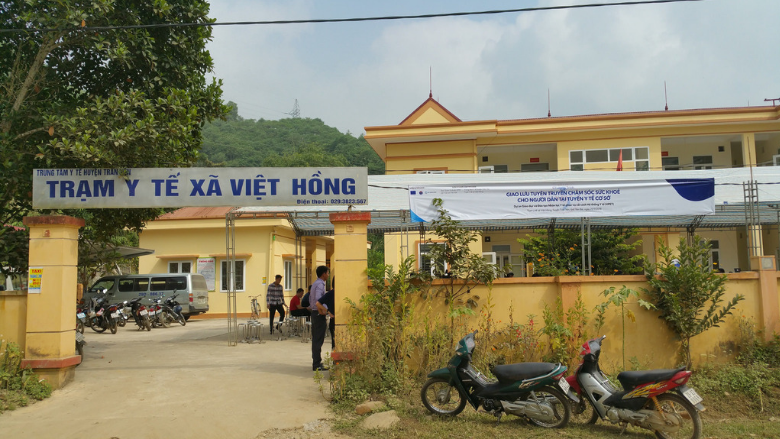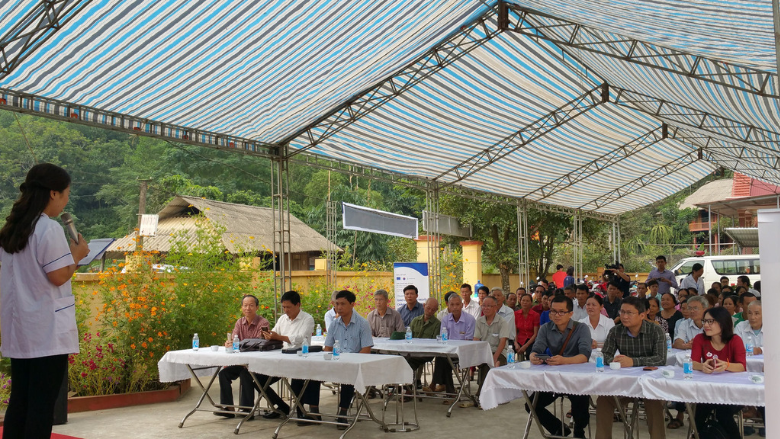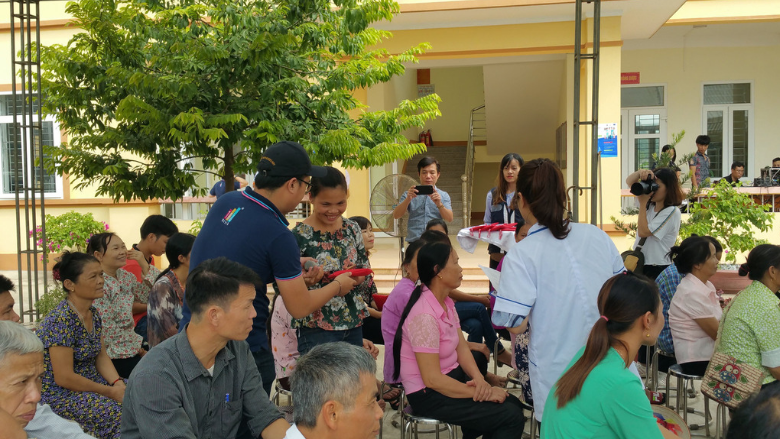It’s a regular weekday morning in late September, but the sight in Viet Hong commune is an unusual one: around 100 villagers are gathered in front of a makeshift stage outside their health clinic to watch a play. The comedy routine worked so well, many in the audience were either bursting into laughter or tears at several points.
How can this help health outcomes? This is a tactic doctor Vuong Thi Hai Anh has learned over the summer to improve village trust in their newly improved healthcare. After the play, a question and answer session followed to address misconceptions and promote the services available at the clinic in Tran Yen district, in the mountainous province of Yen Bai.
Anh and her staff expect those in the audience to spread what they learned to other villagers and help improve overall trust in the clinic staff. The training she received over the summer was part of the Health Professionals Education and Training for Health System Reforms project (HPET), approved by the Vietnamese government in late 2013 for implementation by the Health Ministry between 2014-2020.
HPET, funded mainly by the World Bank and the European Union, aims to improve the quality of education and training for health workers, and strengthen capacity in primary health care across Vietnam's 15 poorest provinces, which can help reduce pressure on regional hospitals.



